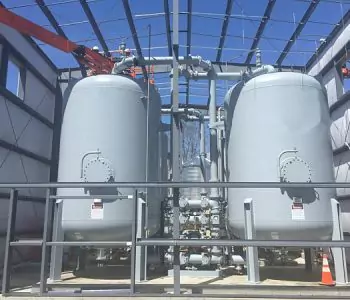
Ms. Erin Palko is a licensed geologist and licensed site remediation professional (LSRP) with more than 25 years of consulting experience in the environmental field. Her primary focus is on soil and groundwater investigations and remediation, work at active chemical and manufacturing industrial sites, due diligence, and site investigation and remediation. She is routinely responsible for project scoping, coordination of multidisciplinary technical teams, client communication, scheduling, and work product delivery. She has experience working at sites affected by an array of chemicals, including per- and polyfluoroalkyl substances (PFAS) at refinery complexes and industrial facilities. Ms. Palko has directed projects involving multiple subcontractors and consultants, stakeholders, and regulatory oversight personnel on a wide variety of sites. Ms. Palko has successfully closed projects, both state and federal led, in multiple states.
M.S., Geology, East Carolina University, Greenville, North Carolina, 1999
B.S., Natural Science (Concentration Geology), University of Pittsburgh, Johnstown, Pennsylvania, 1993
Licensed Site Remediation Professional, New Jersey (License No. 628902), Licensed Professional Geologist, Pennsylvania (Inactive, License No. PG063147), North Carolina (License No. 1790), and South Carolina (License No. 2432)
Hazardous Waste Operations and Emergency Response 40−Hour Certification (1999; refreshers 2000–2025)
Transportation Worker Identification Credential
DelVal Basic Operations Plus/PetroChem Certifications
Basic First Aid and CPR
SafeStart Certified Trainer
Member of Licensed Site Remediation Professional Association: Board of Trustees (2018), Steering Committee (2016–present), Emerging Contaminants Committee (2019–present, Co-chair) and ITRC Characterization and Remediation of Fractured Rock Team (2016–2017)
Erin Palko, P.G., LSRP Principal, Investigation and Remediation
Ms. Erin Palko is a licensed geologist and licensed site remediation professional (LSRP) with more than 25 years of consulting experience in the environmental field. Her primary focus is on soil and groundwater investigations and remediation, work at active chemical and manufacturing industrial sites, due diligence, and site investigation and remediation. She is routinely responsible for project scoping, coordination of multidisciplinary technical teams, client communication, scheduling, and work product delivery. She has experience working at sites affected by an array of chemicals, including per- and polyfluoroalkyl substances (PFAS) at refinery complexes and industrial facilities. Ms. ...
Ms. Erin Palko is a licensed geologist and licensed site remediation professional (LSRP) with more than 25 years of consulting experience in the environmental field. Her primary focus is on soil and groundwater investigations and remediation, work at active chemical and manufacturing industrial sites, due diligence, and site investigation and remediation. She is routinely responsible for project scoping, coordination of multidisciplinary technical teams, client communication, scheduling, and work product delivery. She has experience working at sites affected by an array of chemicals, including per- and polyfluoroalkyl substances (PFAS) at refinery complexes and industrial facilities. Ms. Palko has directed projects involving multiple subcontractors and consultants, stakeholders, and regulatory oversight personnel on a wide variety of sites. Ms. Palko has successfully closed projects, both state and federal led, in multiple states.

Erin Palko Presents on Environmental Issues Related to the Spill Act at CCNJ Conference
Press Release
October 21 2021

